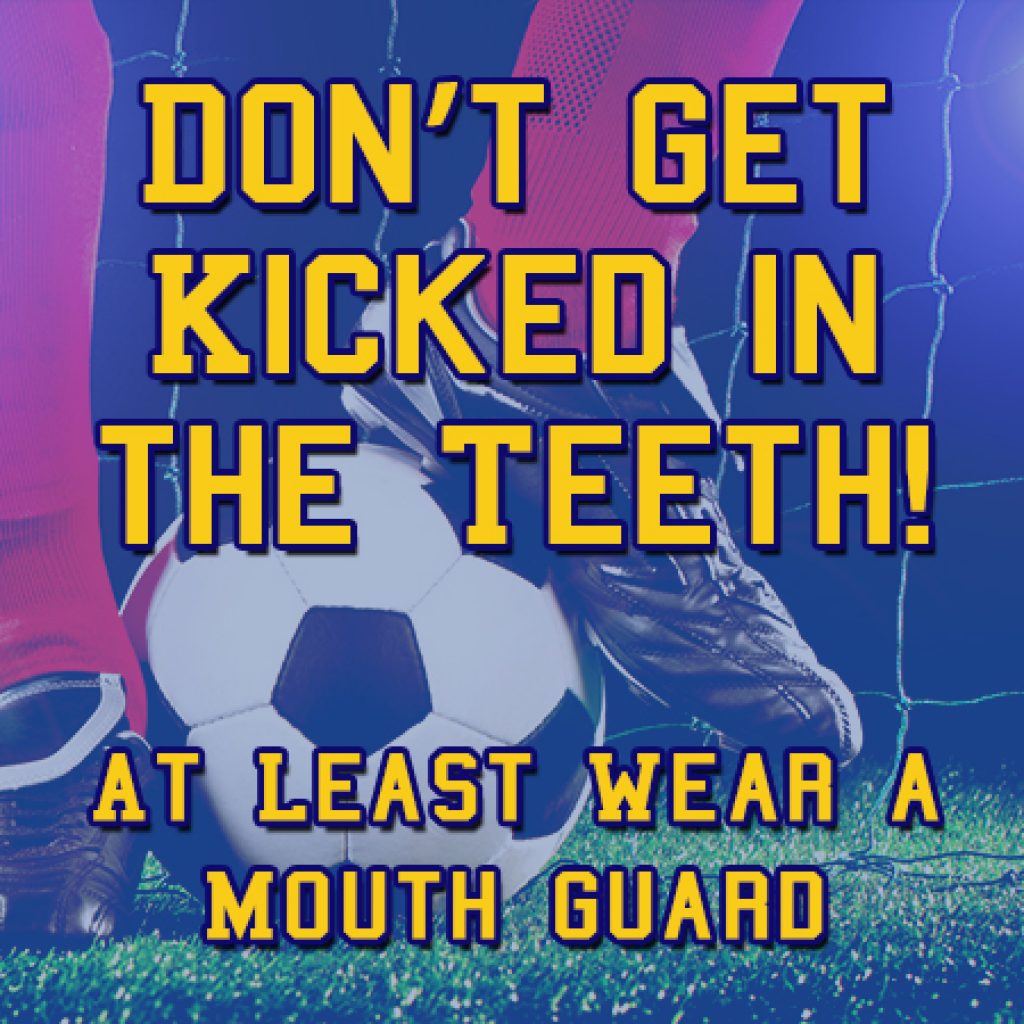 According to the American Dental Association, at least 13% of all injuries to the mouth occur during sports activities. While helmets, shoulder pads, shin guards, and the like do a great job of protecting most of the body, Yorktown Heights dentist Dr. David Lerner would like to make sure that every athlete knows how to keep their teeth safe from harm. No parent should have to worry about their child’s teeth during games, so the Center for Holistic Dentistry would like to talk about how to take sports safety to the next level.
According to the American Dental Association, at least 13% of all injuries to the mouth occur during sports activities. While helmets, shoulder pads, shin guards, and the like do a great job of protecting most of the body, Yorktown Heights dentist Dr. David Lerner would like to make sure that every athlete knows how to keep their teeth safe from harm. No parent should have to worry about their child’s teeth during games, so the Center for Holistic Dentistry would like to talk about how to take sports safety to the next level.
Mouthguards and Sports Safety
In Yorktown Heights, we live for a good game. Our athletes train hard to win, so it’s not hard to imagine why they don’t shy away from contact. However, that doesn’t mean that your family has to suffer the consequences of a sports-related oral injury. Mouthguards are the key to oral safety in sports.
When to Get a Mouthguard
Let’s say your child has decided to sign up for a high school team, or maybe you’ve joined a local sports league. Now you’re wondering – do I really need a mouthguard? Does my child need one? More often than not, the answer is yes. Dr. Lerner reminds us that an oral sports injury can cause anything from a swollen lip to a chipped, broken, or knocked-out tooth to severe tissue damage. Mouth protectors provide a buffer, substantially reducing the risk of harm from an impact. Some research even suggests that mouthguards help protect against concussions. Here are some surprising facts about mouthguards and sports safety:
- Don’t want to wear a mouthguard? Your risk of oral injury is 60 times higher without one
- Oral injuries are 15 times higher in youth basketball than football (likely because mouthguards are required for football, but not for basketball)
- At least 3 million kids’ teeth were knocked out during sports activities in 2012, according to the National Youth Sports Safety Foundation
- The total lifetime cost of a lost permanent tooth can be as much as $20,000
Although schools only require mouthguards for football, lacrosse, field hockey, and ice hockey, basketball and baseball have the highest occurrences of dental injury. To add to that, there are more than 29 sports for which the American Dental Association recommends the use of mouth protectors. Your Yorktown Heights dentist wants everyone to have a healthy, protected smile!
Finding the Right Mouthguard
Dr. Lerner would like everyone to know that sports safety extends beyond just using a mouthguard. In order to have maximum protection, your child or teen needs to wear a properly-fitted mouth protector during games and practices. Most mouthguards cover only the top row of teeth, but the Center for Holistic Dentistry may recommend coverage for both rows under certain circumstances. A mouthguard should never make breathing or speaking difficult. In addition, mouthguards should be resilient, tear-resistant, and fit comfortably in the user’s mouth. Below are the three main types of mouth protectors:
- Stock – these mouthguards can be purchased at most sporting goods stores. They are the cheapest option, but offer the least protection (because they can’t be customized) and may cause irritation or fall out during use.
- Boil and bite – these mouthguards are fitted to the athlete’s mouth after being boiled. Although they fit better than stock mouthguards, they can become worn over time and may not last very long.
- Custom-fitted – these mouthguards are the most expensive but provide the most protection and comfort. Your Yorktown Heights dentist will create a unique mold of your teeth, which is then used to craft a mouthguard that fits your teeth perfectly.
Have any questions? Don’t hesitate to contact us! The Center for Holistic Dentistry is committed to making sure that all our athletes are protected.
The content of this blog is not intended to be a substitute for professional medical advice, diagnosis, or treatment. Always seek the advice of qualified health providers with questions you may have regarding medical conditions.
Sources
http://www.drosmanski.com/blog/category/Sports.html
